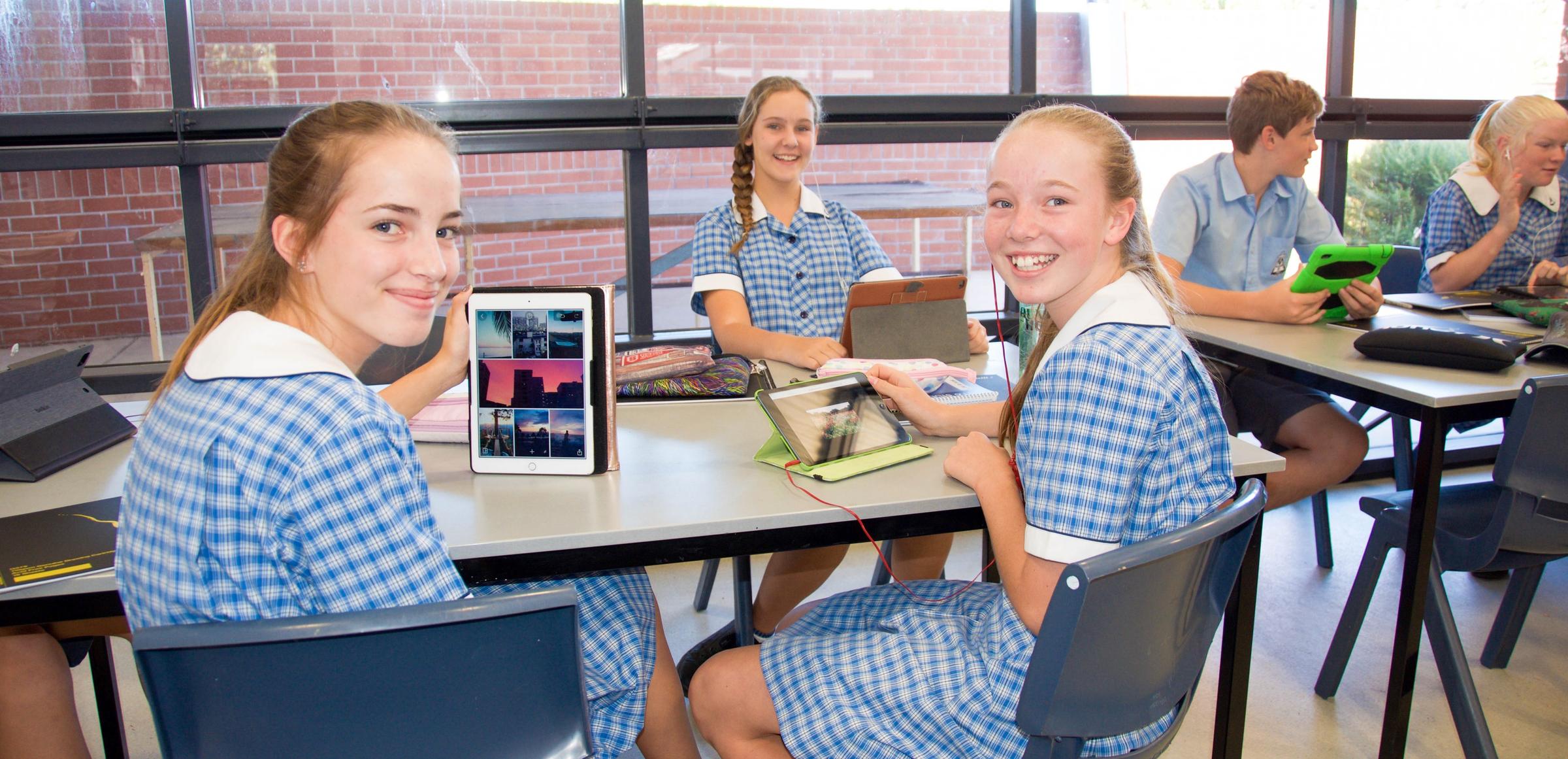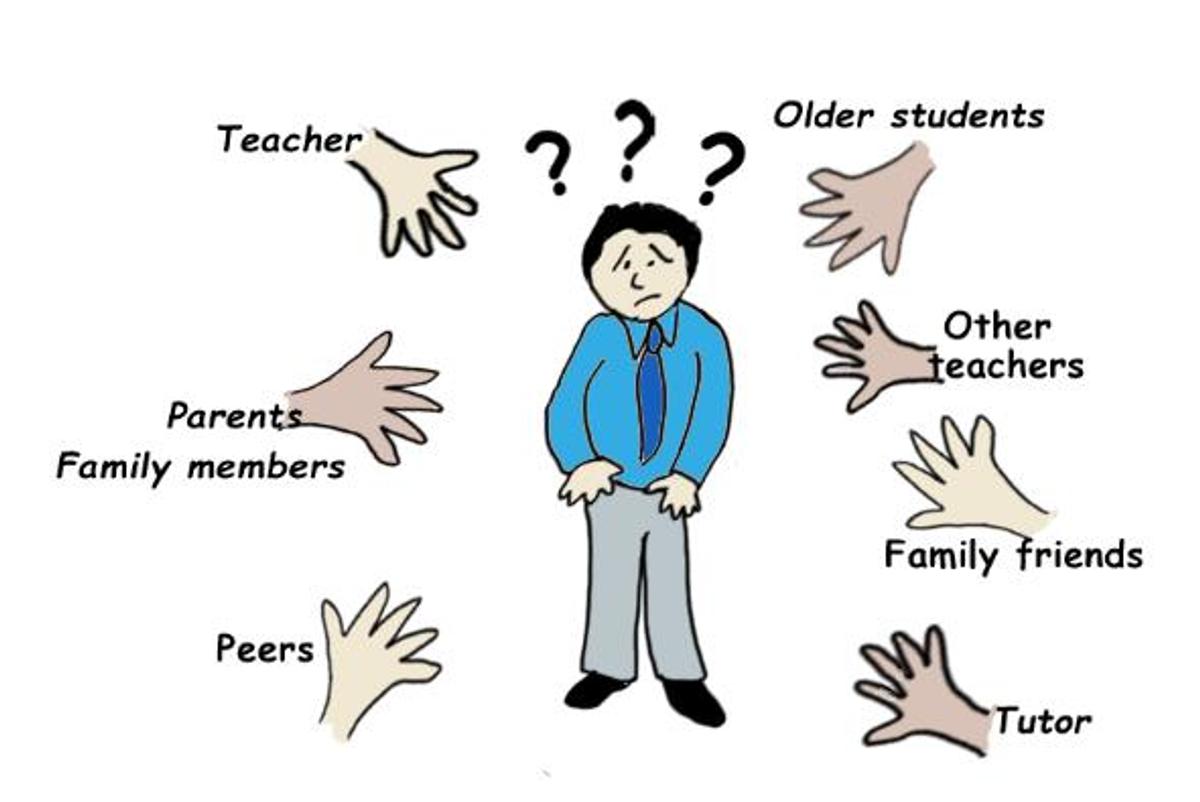SECONDARY NEWS
From the Assistant Principal

SECONDARY NEWS
From the Assistant Principal
Work Experience is scheduled for Year 10 in Week 10; 21 - 25 September. Under current CSO guidelines, it is still possible for this valuable experience to go ahead.
However, there may be increasing difficulty for students to find placements due to COVID-19 restrictions in different industries and resulting changes in workplaces.
PROVISION OF A COVID-19 SAFETY PLAN
In addition to the usual paperwork and assurances provided by the employer, the school must also be provided with a copy of their COVID-19 Safety Plan.
Work Experience will not be allowed to go ahead at businesses where a COVID-19 Safety Plan cannot be provided by the employer.
The deadline for returning Work Experience paperwork is Monday 14 September.
Students who have not yet made any attempt to find a placement will need to do so immediately.
As always, the responsibility for finding a work experience placement lies with the individual student, however, under these unprecedented circumstances the school may be able to assist.
Please contact Mrs McLachlan or Miss Bailey is you have any further questions or require assistance.
With the arrival of Spring students are able to wear their summer uniform. We remind students to wear either summer or winter uniform, not a mixture of both. It is also advisable to check the forecast as early Spring weather is often a time with great temperature fluctuations. The lost property bin in the Secondary staffroom has a number of jackets and other items of clothing.
Please clearly label all clothing with student’s names – this would enable items to be returned promptly.
If students are not correctly attired they are required to present a note to their Pastoral Care teacher and to remedy the situation as soon as possible.
Practical Classes and Appropriate Footwear
It is essential that students have the correct footwear at all times for practical classes in specialist rooms. This includes classes held in the Industrial Technology Workshop, the Food Technology Room and the Science Labs. The school uniform policy states that students are required to wear enclosed black leather or strong vinyl school shoes.
Acceptable Black School Shoes
Shoes should have substantial soles (a substantial sole should be able to tread on a thumb tack and not cause injury to the wearer). Shoes should have laces or a buckle or similar mechanism. Slip on shoes are not permitted and ballet style shoes and black volleys are not acceptable.
It is imperative that, as per WH&S regulations, students adhere to this rule.
If a Technology class is on a Thursday the students are expected to bring their black leather school shoes to change into for that lesson. Students will not be permitted to enter the workshop if they have incorrect footwear.
Year 10 students have visited both high schools and are now in the process of making subject selections for next year.
They have been encouraged to seek advice from their teachers at Holy Trinity, Mr Ryan at Macintyre High School or Mr Dal Santo at Inverell High School. Please contact Miss Bailey if you require assistance regarding this matter.
SUBJECT SPECIFIC ADVICE
If you are finding a particular subject difficult, the first place you should seek help should be your classroom teacher. Firstly ask questions in class as problems arise. If you find you have too many questions to ask in class (as you’d end up disturbing the class) then ask your teacher if you can make a time to see them before or after class or during lunch or after school. Teachers are happy to help students who do their best and are keen to improve. Other places you might be able to find help are: books or extra textbooks in the school or local library, other students in the class, students in older years, other teachers at the school, family members, family friends. If you try all of these options and are still having problems, then you might consider looking for a tutor. Often ex-students from your school who in Years 11 or 12 might be interested in doing some tutoring or even teachers at other schools.


COVID -19
Students are reminded to follow the directions of staff with regard to COVID-19 protocols. The support from parents in ensuring that students remain vigilant and do not become complacent is greatly appreciated.
The protocols in place are as follows:
Learning is not just what you do in the classroom. Study is not just what you do the night before a test. Both of these are ongoing activities that are enhanced by the correct pre and post activities. See which of these 5 Ps you do.
PREPARE: This is the stage where you ensure you have all of the materials you need for learning and have completed any pre-tasks such as reading sections of your textbook in advance or any other activities your teacher asks you to complete prior to the class.
PARTICIPATE: Engaging in your learning is the best way to start to embed it in your memory and ensure you understand. Having the opportunity to discuss and interact and complete different styles of learning activities really helps your brain to process what you are learning.
PLAN: Take the time to look at the assessments for the course and plan when you will start, work on and complete tasks. Anytime you are asked to complete work for class, plan when you will do it and even better write your plan into your diary or online planner.
PRACTISE: One of the best ways to learn is to do practise questions. When you apply what you have learnt to actual questions, you will engage retrieval and cognitive pathways in the brain and reinforce your learning and uncover areas that need extra study.
PINPOINT: After a test or assessment is returned to you, celebrate your successes but also use it to pinpoint areas of weakness. This allows you to then spend time building your strengths in these areas without the pressure of an exam looming.
If you are struggling to get motivated to do your schoolwork, sadly there is no magic solution. However, here are a few strategies you can try units if motivation or procrastination is an issue for you:
We are all different in the way we prefer to learn. Some students like to work in groups, and
others prefer to work alone. Some students like to discuss things over Skype or messenger
and some like to work together in person. There is a reason why we have the saying ‘two
heads are better than one’, so let’s see how this applies to different types of students.
If you think you always prefer to work alone:
If you already love working with other people: